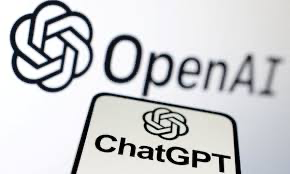OpenAI, valued at $157 billion following a $6.6 billion funding round, is exploring a transition from its original non-profit model to a for-profit business structure.
The company begins discussions with regulators in California and Delaware as it navigates this change. Sources confirm that OpenAI is in talks with California’s Attorney General’s office to address the complexities of altering its corporate structure, particularly concerning the valuation of its valuable intellectual property, including ChatGPT technology. Delaware’s Attorney General is also involved, requesting detailed restructuring plans, as outlined in a formal letter.
Navigating the Balance Between Mission and Profit
Founded in 2015 as a non-profit with the aim of developing AI for the greater good, OpenAI’s move toward a for-profit model raises questions about its commitment to public benefit. However, Bret Taylor, Chairman of the nonprofit board, reassures that the nonprofit will continue to play a significant role in the new structure. “Any potential restructuring will ensure the nonprofit remains active and benefits from its stake in the for-profit,” Taylor states.
OpenAI’s previous creation of a capped for-profit subsidiary in 2019 to address the high costs of AI development lays the groundwork for this transition. Tensions between the nonprofit board and management have existed, especially regarding the balance between AI safety and commercial imperatives. This tension becomes public in 2023 when CEO Sam Altman is briefly ousted before being reinstated amid disputes over the company’s commercialization strategy.
Regulatory Hurdles and Legal Oversight
As OpenAI moves forward, it faces complex regulatory scrutiny. Legal experts emphasize the need for accurate valuation of the company’s nonprofit assets, particularly its extensive intellectual property. California law mandates that nonprofit assets must be properly valued and directed toward charitable purposes, adding complexity to the process.
“It’s not just a matter of removing the nonprofit status. The value of the assets must be carefully assessed and allocated,” says Daren Shaver, partner at Hanson Bridgett LLP.
Jason Kwon, OpenAI’s Chief Strategy Officer, informs employees that the restructuring aims to maintain a nonprofit entity with a substantial stake in the for-profit company. The percentage of this stake and the valuation of the assets are critical to securing regulatory approval.
Elon Musk’s Legal Challenge
The transition to a for-profit model occurs amid ongoing legal disputes. Earlier this year, Elon Musk files a lawsuit against OpenAI, Sam Altman, and Greg Brockman, accusing them of deviating from the company’s non-profit mission. Musk, a co-founder of OpenAI, argues that he was persuaded to support the company with the understanding that it would remain a non-profit focused on advancing AI in opposition to Google’s efforts. The lawsuit also claims that OpenAI’s founding agreement required the company to make its technology freely available to the public.













